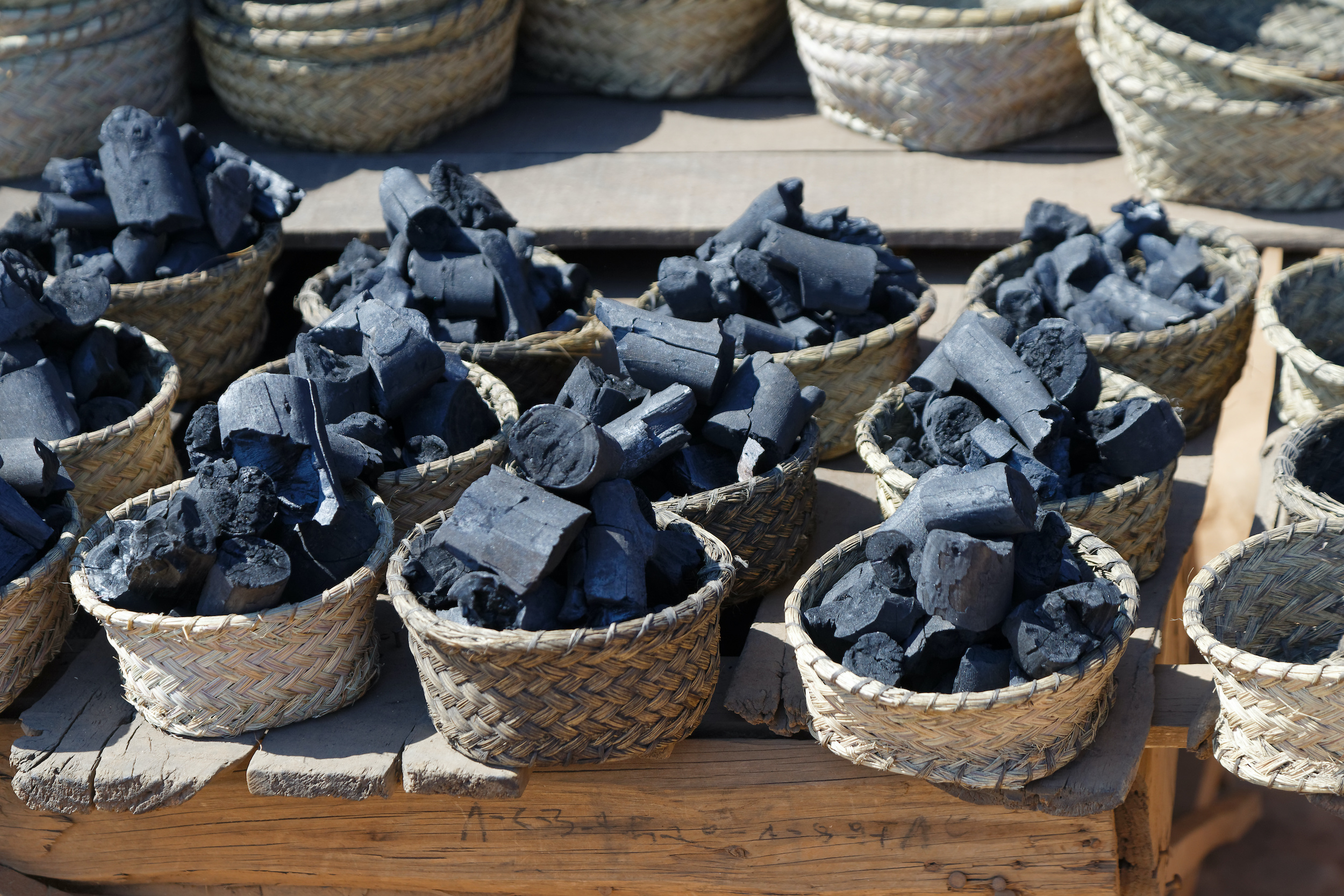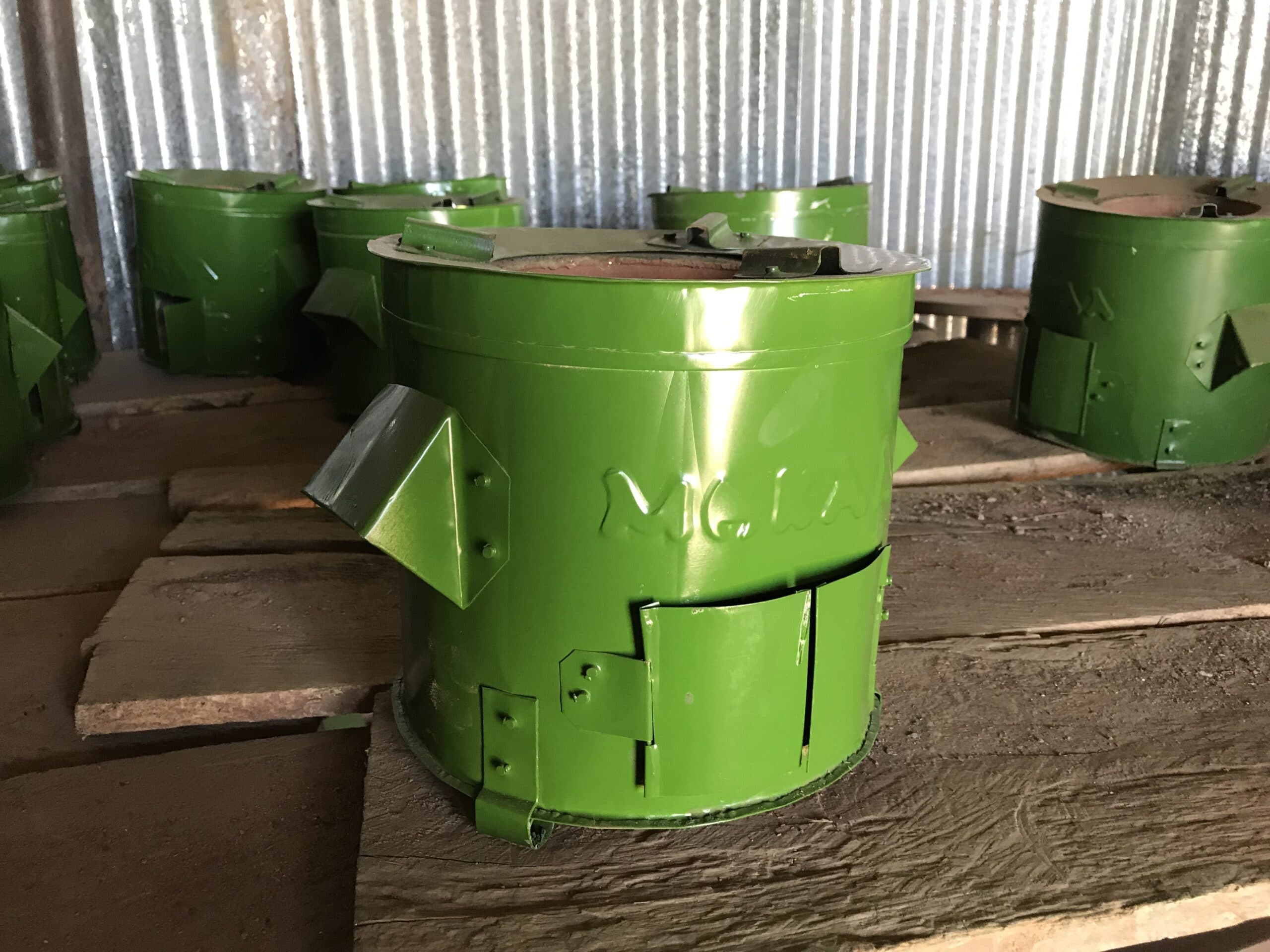 Rogério Carneiro de Miranda, a forest engineer, has dedicated nearly 30 years of his professional life to woodenergy, from mastering the development, production and commercialization of ecostoves (improved wood stoves) in Latin America, to promoting forest replacement associations among small fuelwood consuming enterprises in Central America, alternative cooking with ethanol in Africa, and supporting the modernization of charcoal production in Nicaragua and Brazil. Rogerio is a wood stove entrepreneur, and Director on the Board of The Charcoal Project.
Rogério Carneiro de Miranda, a forest engineer, has dedicated nearly 30 years of his professional life to woodenergy, from mastering the development, production and commercialization of ecostoves (improved wood stoves) in Latin America, to promoting forest replacement associations among small fuelwood consuming enterprises in Central America, alternative cooking with ethanol in Africa, and supporting the modernization of charcoal production in Nicaragua and Brazil. Rogerio is a wood stove entrepreneur, and Director on the Board of The Charcoal Project.
Does Charcoal Have a Future in Africa?
by Rogerio Carneiro de Miranda
When I look at the charcoal sector today across much of Africa, with deforestation, illegal trading, and low efficiency stoves, I wonder if charcoal could be considered a viable source of energy in the future, despite the many problems facing its production, trade and use?
Charcoal is a major cooking fuel in Sub-Saharan Africa, predominantly in urban areas, due to the lack of infrastructure and the high cost of disseminating modern cooking fuels such as LPG and electricity. This is especially the case for low income households. Charcoal is expected to continue to be a major cooking fuel for several more decades.

African leaders need to focus on charcoal’s potential
The narrow vision of policy makers with regards to charcoal is rooted in an antiquated image of the fuel and focuses more on the fuel’s past and present problems. This view ignores the fuel’s full potential. As they impose charcoal bans, and ignore opportunities for its modernization, I see it as a lost opportunity to make charcoal a viable sustainable fuel for African countries.
Most developed countries in the world today have managed to address their own past energy problems, by developing new energy solutions, that overcome the past problems.
For instance, wood was a major energy source of fuel for most countries two centuries ago. Back then, the stove industry developed more efficient wood stoves for cooking and heating. These types of stoves were widely adopted by households, and are still used today in many countries, although in smaller numbers. Moreover, the stove industry has further modernized toward ¨double combustion¨ wood stoves, a new technology that burns wood gas twice, making it even more efficient and cleaner.
One hundred fifty years ago, coal, which packs more energy than wood or charcoal, displaced wood as the energy of choice and became the energy driver that fueled the Industrial Revolution. Nevertheless, the first wood stove industries were very important to support the transition toward the development of new household energy appliances, such as those fueled by coal, LPG and electricity. For instance, here in Brazil many of today’s major LPG stove producers were previously major manufacturers of portable wood stoves, and they still carry some wood stove models in their portfolios.

For the charcoal sector in Africa, I suggest a similar approach. Instead of ignoring and imposing restrictions, African policy makers should see charcoal as an opportunity to develop and diversify local industries that could produce better wood and charcoal stoves, organize trade, and even develop a sustainable source of fuelwood. A time will eventually come when Africans will no longer depend on charcoal, but while it can’t afford to give up on charcoal yet, it should embrace it, and focus on developing a local sustainable and more modern industry to make the best of it. Such an approach would create local industries to overcome the immediate problem, and establish an industrial base that will support the energy transition away from charcoal, when the right time comes. At the same time, this approach would acknowledge the importance of charcoal in generating income for rural and low-income households, and create a mechanism for replacing this loss of income with industrial wages.
Brazil charcoal sector has been transformed
A good example of such transformation is Brazil, the largest charcoal producer in the world. About 40 years ago, charcoal was a driver of deforestation, and the charcoal trade was largely illegal. Furthermore, old charcoal kilns were inefficient and most of the firewood went up in smoke and instead of being converted to charcoal. By adopting transforming forestry policies over the past four decades, Brazil has transformed the charcoal sector from an environmental trouble-maker into a sustainable business. Nowadays, more than 80% of all charcoal is derived from sustainable sources, such as industrial reforestation and tree farming programs. Additionally, charcoal’s kilns have evolved from 16% to 32-34% efficiency. Today the trade is mostly legal and taxed. This change in policy has resulted in the creation of a modern iron and steel industry that are based on sustainable charcoal, which is why its products are known on the market as ¨Brazilian green steel¨. Unlike coal, which is still used in many countries to create steel and iron, Brazil’s sustainable and renewable charcoal is climate friendly.

Furthermore, smoke from charcoal production can be tapped in the form of condensable and non-condensable gases. Condensable gases can be transformed into several chemical subproducts with commercial applications, such as tar, bio-oils and other agriculture and food products, while non-condensable gases from charcoal production can be used to generate electricity. In France, for instance, the charcoal company Carbonex is already co- generating 3.3 MW of electricity by burning the smoke from its charcoal production, and selling it to the French power market, while in Brazil this same approach is being developed by local charcoal companies. Such technology of cogeneration is promising for Africa, given that about 80% of the rural communities, where charcoal is produced, does not have reliable access to electricity.
Charcoal is here to stay, time to make it better
The point here is that many countries resolved their primitive biomass energy use problems by transforming it into a more friendly energy source, with better burning technologies, and regenerative forestry policies. African countries can, similarly, develop local industries to provide solutions for each step in the energy evolution. By not prohibiting or ignoring it, Africa could transform its current charcoal problem into a future sustainable business opportunity.


Pingback: Tanzania's 'War on Charcoal' Harms Everyone - The Charcoal Project
very good peace of work. I jus wish that our policy makers get to read this article and understand that charcoal production is here to stay. What is required of them is to stop condemning it simply because they want to heard talking but come up with the right and transparent policies that benefit the government and producers as well. Indeed, the potential to turn charcoal production and business in northern Uganda into lucrative opportunities is there but the extremes of negative reporting in northern Uganda are outrageous. The present efforts to eliminate that negativity are so inadequate that, numbers are almost irrelevant in seeing what to do next to promote it.
Dear Francis – we agree, if charcoal producers were not demonized it would make it easier to introduce them to more sustainable practices and to regulate those practices. We will keep trying to get this message out!